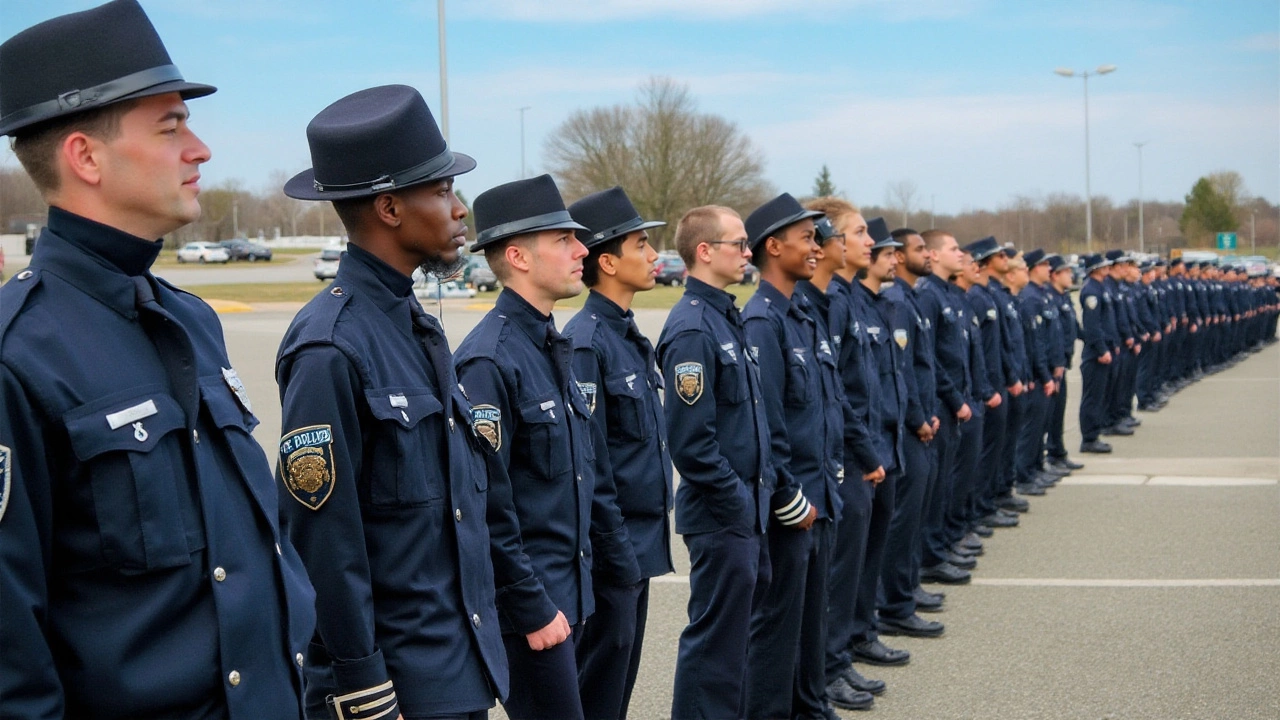Police Officer Training: What You Need to Know
If you’ve ever imagined swapping your 9‑to‑5 for a badge and uniform, the first question is usually “how do I get started?” The short answer: through a mix of formal academy programs, on‑the‑job learning, and continuous courses that keep you sharp. In the UK, police officer training isn’t a one‑size‑fits‑all – there are several paths, each with its own timeline, cost, and focus.
Most new recruits begin with the Initial Police Learning and Development (IPlLD) program, a blend of classroom theory and practical scenarios. It runs for about 12‑16 weeks and covers everything from laws and ethics to self‑defence and emergency driving. After completing IPlLD, you’ll spend a year of on‑the‑job training, called the **Professional Development Phase**. During this time you’re mentored by experienced officers and get real‑world exposure to patrols, investigations, and community policing.
But the training doesn’t stop there. Whether you want to specialize in cybercrime, firearms, or public order, the police force offers a range of short courses and qualifications. These are often delivered by accredited providers like GoSkill Vocational Training, which tailors content to meet the Home Office standards and can be taken online or in‑person.
Types of Training Programs
1. Full‑time Academy Courses – Ideal for people changing careers. You’ll attend a police college full‑time, earn your diploma, and graduate ready for the field. Expect a salary during training, similar to the one mentioned in our post about Virginia’s police academy pay – most UK forces also pay recruits while they learn.
2. Part‑time/Apprenticeship Routes – If you need to work while training, apprenticeship programs let you split time between classroom study and on‑the‑job shifts. You earn a wage and gain qualifications like the Level 3 Diploma in Policing.
3. Specialist Short Courses – These range from 1‑day workshops on video surveillance to 6‑week intensive firearms training. They’re perfect for officers looking to upskill or for civilians eyeing a supporting role in security.
4. Online & Blended Learning – Platforms like GoSkill deliver modules on legislation updates, mental health awareness, and community engagement that you can complete at your own pace. The flexibility helps you stay current without missing work.
How to Get Started with GoSkill
First, visit the GoSkill website and filter courses by “Police Officer Training.” You’ll see a clear list of accredited programs, each with a short description, duration, and cost. Choose a course that matches your career stage – whether you’re a fresh graduate or an experienced officer seeking a new specialty.
Next, sign up for a free demo. GoSkill offers a 15‑minute preview video that walks you through the learning platform, so you know exactly what to expect. After that, you can enroll, pay online, and immediately access the first module.
Don’t forget to check for any funding options. Many police forces subsidise training for their staff, and some courses qualify for government apprenticeship grants. GoSkill’s support team can help you fill out the paperwork.
Finally, set a realistic study schedule. Even if the course is self‑paced, aim for 2‑3 hours a week and use the built‑in quizzes to test your knowledge. The more you engage, the faster you’ll earn the certificates that boost your promotion prospects.
In a nutshell, police officer training in the UK blends academy learning, on‑the‑job experience, and specialist courses. With the right mix of formal study and flexible online options from GoSkill, you can start your badge‑wearing journey today and keep climbing the ladder of law‑enforcement success.




